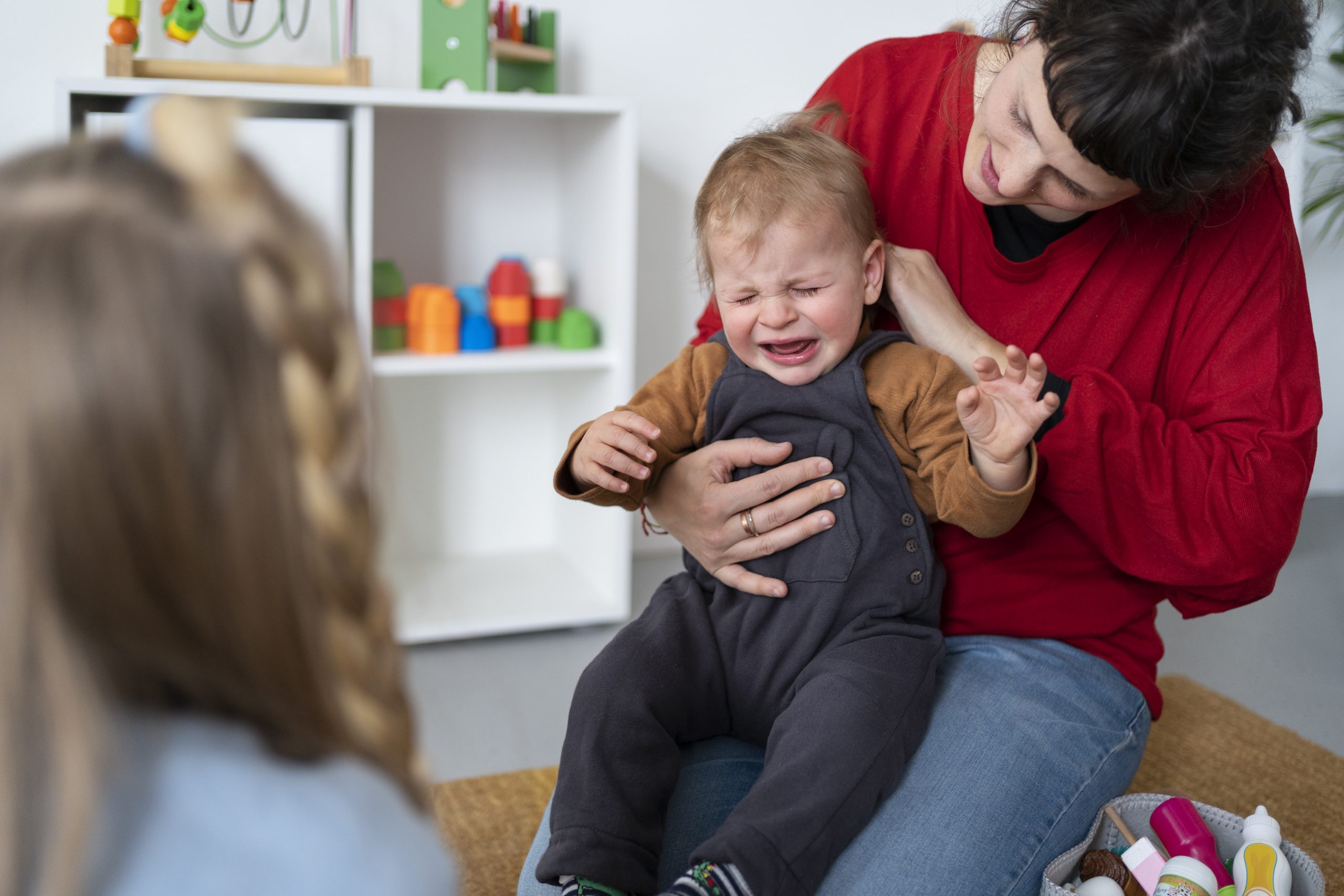For many families, the move into daycare is both exciting and emotional. Children are introduced to a world of new friendships, playful learning, and caring teachers, while parents often balance feelings of pride with worries about how their little one will adapt. This moment of change is an important milestone, and preparing well can help everyone feel more confident about the journey ahead.
The good news is that research shows children thrive in daycare environments that are supportive, high-quality, and responsive to their needs. Parents also play a huge role in shaping how smooth this transition feels.
Why Daycare Matters for Children
Research highlights that daycare can positively influence children’s social, emotional, and cognitive growth when the care is high-quality and supportive:
- Quality is key: A large study found that children in high-quality daycare—where caregivers offered warmth, guidance, and emotional support—had better social skills and fewer behavior issues than children in less supportive environments (Broekhuizen et al., 2018).
- Parent emotions influence children: A 2024 study found that mothers who felt anxious or sad about preschool had children who struggled more with adjustment. When parents were calm and confident, children adapted faster (Ruźniak-Lubocka & Kaźmierczak, 2024).
- Gradual exposure helps: Parents and teachers agree that a slow introduction to daycare—through short visits or trial mornings—builds trust and lowers separation anxiety (Vidmar, 2017).
In other words, daycare itself isn’t harmful—what really matters is the quality of the care, the communication between parents and teachers, and the support children receive at home.
Parent-Friendly Tips to Ease the Transition
Here are practical ways to make daycare a smoother, happier experience for your child and your family.
Prepare Before Daycare Starts
Children do best when they know what to expect. Try these strategies before the first day:
- Visit together: Take your child to the daycare centre to explore toys, meet teachers, and see other children. Familiarity builds comfort.
- Talk positively: Frame daycare as exciting. Simple phrases like “You’ll play with toys and make new friends” can build anticipation.
- Align routines early: Start adjusting naps, meals, and wake-up times at home to match daycare’s schedule.
- Practice separation: Arrange short playdates or babysitting sessions so your child learns that you always come back.
- Introduce comfort items: A blanket, toy, or family photo can help provide reassurance in the first weeks.
Support During the First Weeks
The first days of daycare often come with tears, but how you handle drop-offs and communication makes a difference:
- Keep drop-offs short and confident: say a warm goodbye, reassure them you’ll be back, and avoid sneaking away.
- Trust the caregivers: Teachers are trained to comfort and support children, even when emotions run high.
- Stick to routines: Consistent drop-off and pick-up times help children feel secure.
- Expect some tears: It’s normal! Most children adjust within a few weeks as they form bonds with caregivers and friends.
Reinforce Security at Home
Your role doesn’t end once you pick your child up from daycare. Home life helps reinforce a sense of safety and consistency:
- Ask simple, open-ended questions: Instead of “How was daycare?”, try “What did you play with today?” or “Who did you sit with at lunch?”
- Offer extra comfort: Busy days with new faces and routines can be tiring. More cuddles and downtime at home can help.
- Celebrate small successes: Praise your child when they talk about a new friend, join in group play, or manage a happy goodbye.
Managing Parental Emotions
Many parents underestimate how hard the transition can be on them. Studies show parents often feel anxiety, guilt, or sadness when their child begins daycare (Ruźniak-Lubocka & Kaźmierczak, 2024). That’s natural—but your child will look to you for cues.
Ways to manage your emotions include:
- Building a relationship with educators so you feel confident in their care.
- Talking with other parents who’ve been through the transition.
- Reminding yourself that daycare supports independence, resilience, and important social skills.
Final Takeaway
Starting daycare is a big step, but with preparation, consistency, cultural inclusivity, and strong parent-caregiver partnerships, you can turn it into a rewarding experience. By setting your child up with trusted routines, listening openly to their needs, and embracing the principles of personal nurturing illustrated by Kia Ora Kids, you’re helping build a foundation of confidence, independence, and emotional growth that will last well beyond the daycare years.
References:
- Broekhuizen, M., Aken, M., Dubas, J., & Leseman, P. (2018). Child care quality and Dutch 2- and 3-year-olds’ socio-emotional outcomes : Does the amount of care matter?. Infant and Child Development, 27.
- Ruźniak-Lubocka, A., & Kaźmierczak, M. (2024). Maternal emotions during child’s transition to the preschool. Family Forum.
- Vidmar, A. (2017). Comparison of parents’ and teacher’s views on the process of introducing the child to preschool.

